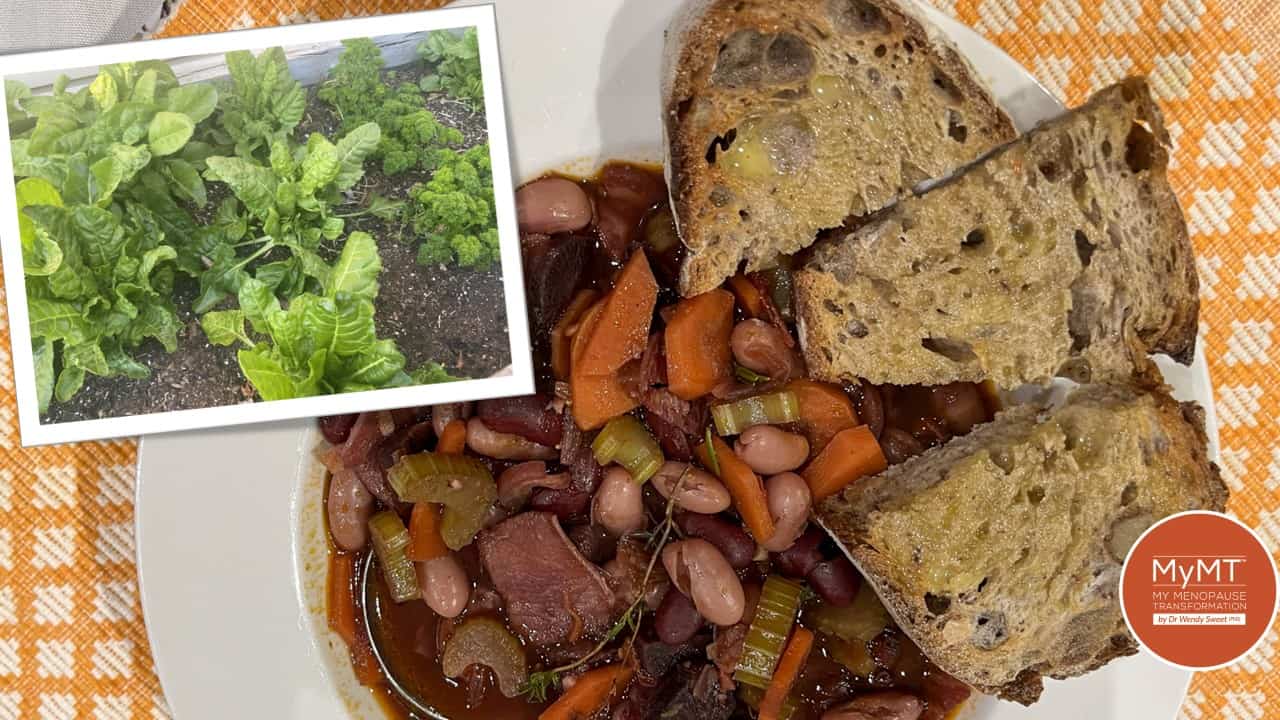The importance of dietary fibre in our diets has a long history. The term ‘fibre’ was first used in the 1950s in reference to the non-digestible component that constitutes the cell wall of plant-derived food.
In the 1970s, compelling research emerged linking diets poor in dietary fibre with colon cancer and since this time, there has also been a plethora of research linking a high fibre intake to improved gut health, brain health and improving cardiovascular health outcomes too.
The Mediterranean diet (MedDiet) is one of the most widely described and evaluated dietary patterns in scientific literature [Schwingshackl et al, 2019]. It typically has a high fibre content. In terms of women’s health as they move into their post-menopause years, this is important.
There is now a large body of evidence demonstrating that risk of cardiovascular disease (CVD), Type 2 diabetes (T2D), site‐specific cancers, and cognitive (brain and memory) disorders are reduced when women adhere to a Mediterranean dietary pattern of eating. (Dinu, Pagliai, Casini, & Sofi, 2018).
The reason for this is due to the anti‐inflammatory, and antithrombotic (blood clot prevention), anti-oxidant and cholesterol‐lowering properties of numerous bioactive compounds within the types of foods that make up the traditional Mediterranean dietary pattern.
So why aren’t we changing our diet to better suit this evidence? Based on the emails I receive from so many women, there is still a lot of confusion about nutritional choices in menopause. Confusion that has followed many of us for decades.
The main characteristic of what is today called the Mediterranean dietary pattern is the use of unprocessed nutrient-dense foods with plenty of fibre. It has low frequency of red meat and meat products and is higher in beans as well as vegetables compared with contemporary western diets.
Making this beautiful brain-boosting Mediterranean bean and bacon stew is a great way to get both fibre and vegetables into you. If you also serve wilted spinach on the side, then this helps to boost folate intake. I’ve spoken about the benefits of folate before, especially for cognition and brain health, because it helps with the repair and function of our nervous system.
This recipe has been sourced from Mediterranean Chef, Claudio Roden. I hope you and your family enjoy it’s richness and goodness as much as my family did as well.
Bean Stew with Bacon and/or Chorizo
Serves 4
- 2 tablespoons of extra virgin olive oil
- 200 gm of bacon (I use a chemical-free bacon)
- 1 large onion, coarsely chopped
- 4 garlic cloves, chopped
- 1/4 tsp ground cinnamon
- 1/4 tsp ground allspice
- 1 tomato peeled and chopped (I used 2 canned tomatoes)
- 2 x 400gm tins of butter beans or cannellini beans
- 250 gm chorizo (optional)
- 500ml chicken stock (I sometimes just use a vegetable stock instead)
- 4 thyme or rosemary sprigs
- salt
- extra virgin olive oil to serve with sourdough bread (optional)
Method
Heat the oil in a wide pan and put in the onion and bacon. cook over medium heat for about 10 minutes, stirring and turning over occasionally, until the bacon has released its fat and the onion is soft.
Add the garlic and cook, stirring, until the onion is golden and the bacon crisp.
Stir in the cinnamon and allspice, then add the tomato, beans and chorizo if you are using chorizo. Pour in the stock, add the thyme or rosemary sprigs and simmer over low heat for 15 minutes.
Season with a small amount of salt if necessary, however, I tend not to add this, because there is also salt in the stock, and during menopause, we have to also focus on reducing our blood pressure, so adding salt to meals must be done with some caution.
Serve hot and pass round the extra virgin olive oil to drizzle these beautiful omega-3 fats either on the meal or with some sourdough or ciabatta bread on the side. These types of fats are also known to boost brain health as is folate present in the side-dish of wilted spinach.
Bon appetit.
Dr Wendy Sweet (PhD)/ Founder: MyMT™ Founder/ Member: Australasian Society of Lifestyle Medicine.


